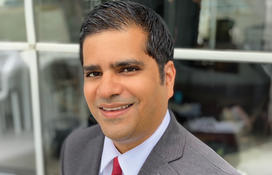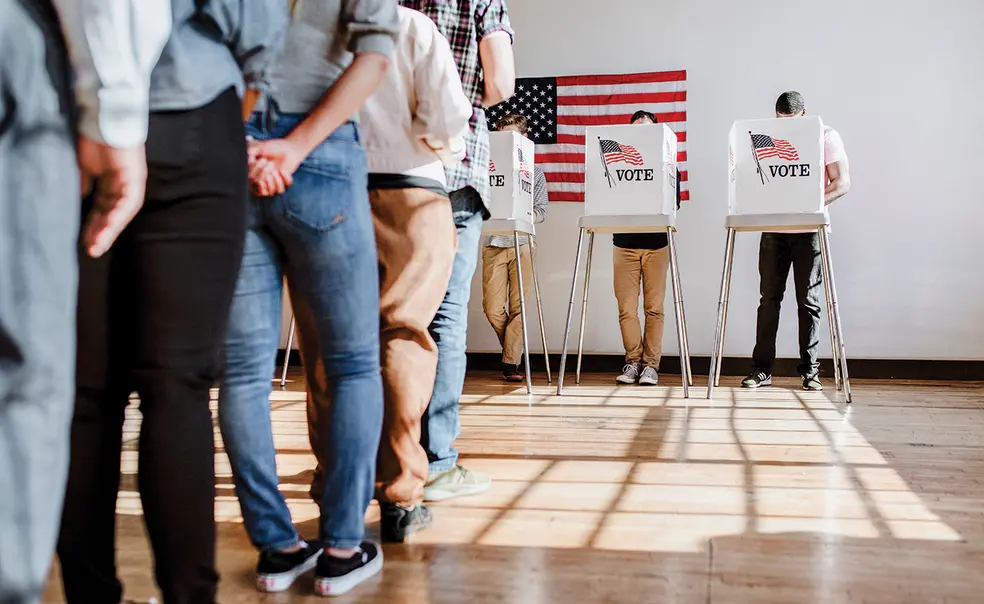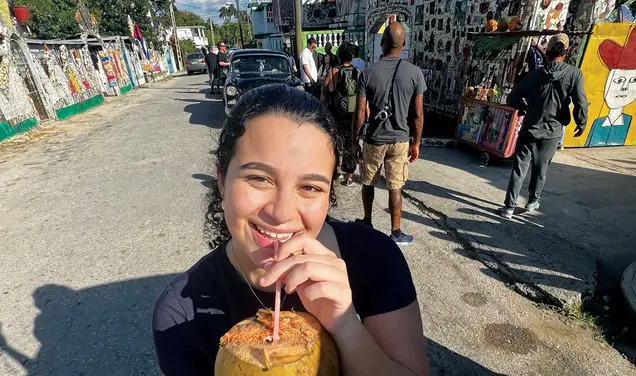Neel Sukhatme *15 Is Helping the Formerly Incarcerated Regain Their Voting Rights

Neel Sukhatme *15 has a lot of interests. His undergraduate degree at the University of Illinois at Urbana-Champaign was in computer engineering with a minor in mathematics. He worked as a patent agent before going on to earn a law degree from Harvard. At Princeton, he earned a Ph.D. in economics. Now at Georgetown, Sukhatme serves as an associate dean for research and academic programs and teaches courses in areas such as property law, patent law, and corporate finance. He’s even got a side gig developing Spindrop, a music technology he created with former roommate Mike Yang ’04 that harnesses artificial intelligence to serve as a DJ.
Arguably, though, Sukhatme’s biggest impact has come in an entirely different area: helping formerly incarcerated individuals regain the right to vote.
In 2018, Florida voters approved a ballot measure to ease the restoration of voting rights for most individuals with felony convictions after they have completed the terms of their sentence. It won an impressive 65% of votes cast. By some estimates, 1.7 million Floridians, or roughly 10% of the state’s voting-age population, are eligible for voting rights restoration.
But after passage, the incoming governor, Ron DeSantis, and the Republican-controlled legislature enacted legislation to retroactively weaken the citizen-approved measure. They required that those impacted pay off all fees, fines, and restitution before being allowed to vote again. This proved to be more than a technicality: Florida had no unified system for determining whether someone had paid these expenses. So, these individuals who wanted to vote again faced a dilemma: They had to inquire with any number of offices in different counties around the state to confirm that their expenses had all been paid — or else they risked breaking the law anew by casting a ballot.
In July 2020, Sukhatme — who graduated Harvard Law School in the same class as DeSantis — read an article about the quandary in Florida. “It struck me as fundamentally and morally wrong,” Sukhatme says. “I said, ‘I think I can do better.’” So along with a Ph.D. student, Alexander Billy, he co-founded a group called Free Our Vote in 2020 to help formerly incarcerated individuals regain their voting rights.
Leveraging Sukhatme’s technical expertise, the group built web scrapers to pull data from 26 Florida counties that account for about 85% of the state’s population. After collecting half a million records within about a month, the group identified about 20,000 Floridians who owed nothing but weren’t necessarily aware of that fact. Partnering with the Washington, D.C.-based Campaign Legal Center, Free Our Vote sent letters to inform those voters that they could cast ballots without worrying about breaking the law.
A follow-up analysis by the group found that among recipients of those letters, voting rates increased by 16%.
Then, in about 2,000 cases, Free Our Vote went a step further, paying off small amounts still owed by individuals with past felony convictions, thereby enabling them to vote. The average amount of these court debts fell between $50 and $75. For the people whose fines were paid off, voting rates rose by 26%.
Sukhatme secured funding through a combination of volunteer work, donations from the public, and some support from Georgetown University. With additional financial backing, Sukhatme says, the group would pay off the remaining debts for even more people. He hopes to expand fundraising appeals in the future.
Sukhatme volunteers his time to Free Our Vote; the group recently hired its first full-time executive director. It is now working to expand its efforts to other states, including Virginia and Kansas. “We view this as a human rights issue,” Sukhatme says. “Once you’ve done your time, you should be able to vote.”
This story is part of PAW’s series highlighting the stories of alumni doing inspiring work. To nominate others, please email your ideas to paw@princeton.edu.












No responses yet